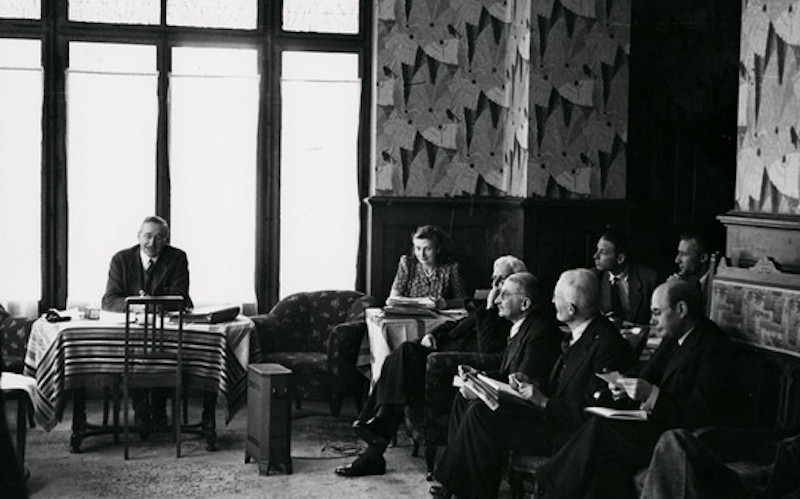
In the November issue of the Brooklyn Rail, Pavlos Roufos talks to historian Quinn Slobodian, whose most recent book is Globalists: The End of Empire and the Birth of Neoliberalism (2018). Slobodian restores meaning and historical context to the term “neoliberalism” and clarifies the neoliberal position on the state, which is often misunderstood. He also suggests ways that left-wing movement might intervene in the current situation in which neoliberal policies have lost legitimacy but a new economic orthodoxy has yet to solidify. Here’s an excerpt from the interview:
Pavlos Roufos (Rail): Perhaps to situate your position properly, it would make sense to start with your definition of “neoliberalism.”
Quinn Slobodian: The way I understand neoliberalism comes from the work of the people who called themselves neoliberal. The term itself was coined in 1938, by a group of economists, journalists, and politicians who gathered in Paris, people like Friedrich Hayek, Ludwig von Mises, Wilhelm Röpke, Walter Lippmann, Louis Rougier, and others. They were looking at the Great Depression and asking themselves: how can capitalism survive despite its internal tendency to self-destruct? And they were quite clear that if you simply let capitalist interests govern by themselves, there will eventually be a counter-reaction and a mobilized population would overthrow capitalism. A fully unregulated and a fully untamed capitalism would lead to an opposition which would inevitably be communist or socialist. Thus, they realized that it was necessary to think anew about the state, in a way that would protect capitalism from the threat of overthrow by the masses. For capitalism to survive, they concluded, it needed a strong state.
This group of people assembled again after the Second World War to form the Mont Pèlerin Society. By following this group, you can see an evolving set of conversations which, from the 1930s to the 1990s, revolved around designing institutions that would constrain sovereign nation-states from doing things that were outside of the interest of the reproduction of the capitalist world economy. If you think about the way that nation-states were embedded in new institutions such as GATT (which became, in 1995, the WTO), the IMF, the European Union, you see that these were institutions with many purposes, but one of their most important ones was to prevent the subversion of capitalist exchange between nation-states.
Image: Inaugural meeting of the Mont Pelerin Society, 1947. Via the Verso blog.